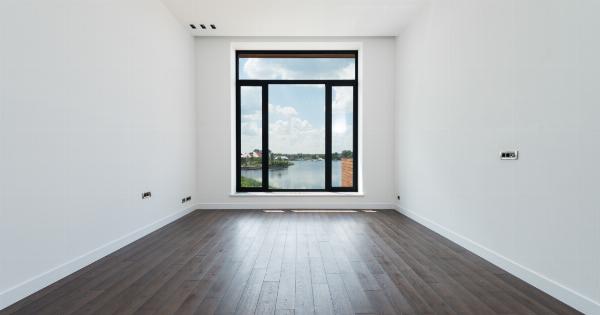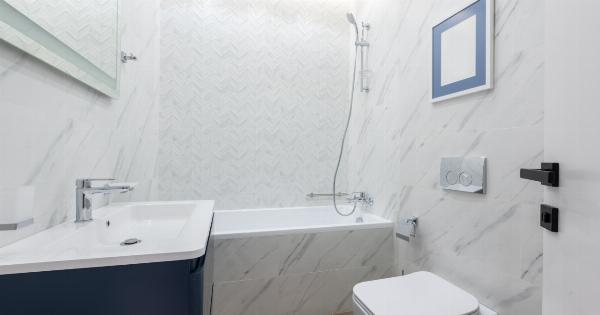Creating a healthy bedroom environment is crucial for optimizing your overall well-being. We spend a significant portion of our lives in our bedrooms, so it is important to ensure that this space promotes relaxation, rejuvenation, and restful sleep.
Making a few simple changes to your bedroom can have a significant impact on your health and quality of life. In this article, we will explore some easy adjustments you can make today to create a healthier bedroom environment.
1. Declutter and Organize
A cluttered bedroom can lead to a cluttered mind, making it difficult to relax and unwind at the end of the day. Take the time to declutter and organize your bedroom. Remove any unnecessary items and find proper storage solutions for the essentials.
A tidy environment creates a sense of calm and helps you sleep better.
2. Choose Natural and Non-Toxic Materials
Many conventional mattresses, bedding, and furniture can release harmful chemicals into the air, affecting the bedroom air quality.
Opt for natural and non-toxic materials, such as organic mattresses, organic cotton bedding, and low-VOC (volatile organic compounds) furniture. These choices reduce your exposure to potentially harmful substances, promoting a healthier bedroom environment.
3. Enhance Ventilation
Poor indoor air quality can have a negative impact on your health. Improve the ventilation in your bedroom to ensure a constant supply of fresh air.
Open windows regularly to allow for cross ventilation and consider using an air purifier to filter out pollutants and allergens. Breathing clean air while you sleep can significantly improve your sleep quality.
4. Control the Lighting
Lighting plays a crucial role in regulating your internal body clock. Optimize your bedroom lighting by using blackout curtains or blinds to create darkness during the night.
Minimize the use of electronic devices with bright screens before bed, as they emit blue light that can interfere with your sleep-wake cycle. Consider using dimmers or warm-toned LED bulbs for a soothing ambiance.
5. Establish a Sleep Routine
Creating a sleep routine helps your body recognize when it’s time to wind down. Set a consistent bedtime and wake-up time, even on weekends, to regulate your internal clock. Avoid stimulating activities, caffeine, and heavy meals in the evening.
Instead, consider relaxing practices such as reading a book or taking a warm bath to prep your body for restful sleep.
6. Minimize Electronic Devices
Electronic devices emit electromagnetic fields (EMFs) that can disrupt your sleep patterns and overall health. Remove electronic devices such as smartphones, tablets, and laptops from your bedroom, or at least keep them away from your sleeping area.
Create a technology-free zone to promote a more peaceful and conducive sleep environment.
7. Keep the Room Cool and Well-Ventilated
Your bedroom temperature plays a crucial role in achieving optimal sleep. The National Sleep Foundation recommends maintaining a bedroom temperature between 60 and 67 degrees Fahrenheit (15 to 19 degrees Celsius) for the best sleep.
Ensure your bedroom is well-ventilated and consider using a fan or air conditioner to create a cool and comfortable sleep environment.
8. Invest in a High-Quality Mattress and Pillows
Your mattress and pillows significantly impact your sleep comfort and spinal alignment. Investing in a high-quality mattress and pillows tailored to your preferences can enhance the quality of your sleep.
Choose a mattress that provides proper support and aligns your spine while sleeping. Pillows should support the natural curve of your neck. Testing mattresses before purchasing and selecting the right firmness and material for your pillows can make a world of difference to your sleep health.
9. Choose Calming Colors and Décor
Colors have a psychological impact on our mood and emotions. Opt for calming colors in your bedroom, such as soft blues, greens, or neutrals, to create a serene and relaxing environment.
Ensure that the décor and artwork in your bedroom evoke positive emotions and contribute to a sense of tranquility.
10. Control Noise Pollution
A noisy bedroom can disrupt your sleep and negatively impact your well-being. Identify and address sources of noise pollution in your bedroom.
Use earplugs, a white noise machine, or soothing sounds, such as nature sounds or quiet instrumental music, to mask unwanted noise and promote a more peaceful sleep environment.






























